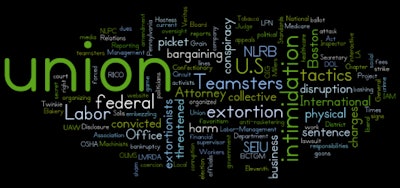Student assistants working at private colleges and universities are statutory employees covered by the National Labor Relations Act, and, as such, they are entitled to collective bargaining, the National Labor Relations Board ruled Tuesday.
In a 3-1 decision, the board ruled in favor of the Graduate Workers of Columbia-GWC, UAW and against Columbia University, stating that the labor relations act “contains no clear language prohibiting student assistants from its coverage.” By doing so, the board reversed a previous NLRB ruling in the case of Brown University, which had resulted in student assistants at private institutions being denied the right to seek union representation.
According to an NLRB news release announcing the Columbia decision, “Federal courts have made clear that the authority to define the term ‘employee’ rests primarily with the Board … . The Act contains no clear language prohibiting student assistants from its coverage. The majority [of board members] found no compelling reason to exclude student assistants from the protections of the Act.”
Over the years, the universities had argued that assistants and researchers were primarily students rather than employees and that their work was part of the educational process.
Teaching and research assistants at private institutions are covered by the Columbia ruling; those at public colleges and universities are not, although many are allowed to unionize based on individual state laws. The Columbia decision is the latest in a series of rulings on this issue.
“It’s been an issue that has sort of ping-ponged around through the years depending on which political party is in power,” Daniel Johns, an attorney with Ballard Spahr’s Higher Education Group, told Diverse just hours after the decision was announced, explaining that each U.S. president’s administration appoints three members to the five-person board (there is currently one vacancy). The three current Democratic appointees represent the majority.
The latest case came about when the Graduate Workers of Columbia-GWC, UAW filed an election petition seeking to represent both graduate and undergraduate teaching assistants, along with graduate and departmental research assistants at the university in December 2014. The current majority stated in its decision that the Brown decision “deprived an entire category of workers of the protections of the Act without a convincing justification.”
NLRB Chairman Mark Gaston Pearce was joined by Members Kent Y. Hirozawa and Lauren McFerran in the majority opinion. Philip A. Miscimarra dissented in the case.
The majority of board members summed up their opinion stating that “there is no compelling reason—in theory or in practice—to conclude that collective bargaining by student assistants cannot be viable or that it would seriously interfere with higher education.”
Two Republican members of the House of Representatives issued a sharp rebuke of the NLRB decision, stating, in part, “At a time when many Americans are already struggling to obtain a higher education, it’s disturbing that a group of unelected bureaucrats is creating new barriers to success. This partisan, short-sighted decision may have powerful union leaders cheering, but it will have far-reaching, negative consequences for schools and the students they serve.”
Johns pointed out that, although the ruling takes effect immediately, “the students have to petition the NLRB to unionize and the board will process those petitions. He also said the issue could ultimately reach the courts.
But for now, Johns said, “It’s coming out right at the beginning of the semester, when students often have bit more time … so we may see a significant uptick this fall in student organizing.”





















